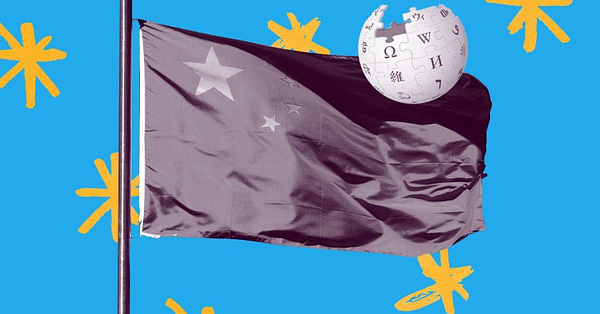Why Wikipedia Banned Several Chinese Admins
The recent ban of admins is the latest example of a political values clash between the Wikipedia community and mainland China.
It’s fair to say Beijing is on icy terms with Wikipedia. Back in 2015, Beijing deployed its Great Firewall to block the Chinese-language version of Wikipedia, and it began blocking all language versions of the site in 2019—a few months before the 30th anniversary of the Tiananmen Square protests.
But according to some Wikipedia editors from mainland China, the vitriol did not end in 2019. On Sept 13, the Wikimedia Foundation, the San Francisco-based nonprofit organization that supports Wikipedia, banned seven Wikipedia users and removed administrator powers from 12 users who were affiliated with a group known as Wikimedians of Mainland China. These WMC editors were demoted or banned after reports that they were seeking to control Wikipedia and skew its content toward a hardline Chinese nationalist point of view.
In a statement following the bans, Maggie Dennis, the foundation’s vice present of Community Resilience & Sustainability, said that the action came as the result of “infiltration concerns” and followed a yearlong investigation, calling the case “unprecedented in scope.” The foundation did not rule out the possibility that the problematic users were linked to the Chinese government, but noted that this was not the focus of its investigation. “We needed to act based on credible information that some members (not all) of that group [WMC] have harassed, intimidated, and threatened other members of our community, including in some cases physically harming others, in order to secure their own power and subvert the collaborative nature of our projects,” Dennis told Slate in an email.
So far, media coverage of the bans has differed wildly between pro-Beijing and Western sources. According to the Global Times, a daily tabloid newspaper controlled by the Chinese Communist Party, the incident amounted to a “well-calculated suppression” of mainland Chinese editors. Meanwhile, the BBC noted in an article that the threat of capture by the CCP was a risk that “threatened the very foundations of Wikipedia.”
Although the WMC has said the claims against them are nothing but slander, it’s not unreasonable to suspect that the CCP cares a lot about Wikipedia. “Governments and politicians are increasingly interested in how facts are represented on Wikipedia because of the authority and popularity of the source around the world,” Heather Ford, an associate professor of digital and social media at the University of Technology Sydney, said in an email. “In my experience, it’s not only the government but also government supporters who understand the centrality of Wikipedia as an authority and attempt to influence its representations.”




